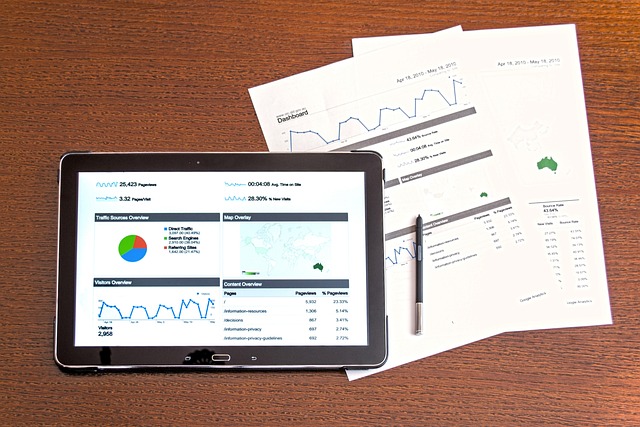AI early warning systems for food spoilage are revolutionizing food safety and sustainability by leveraging data analysis, including temperature, humidity, shelf life, and product type, to predict degradation risks. These systems enable businesses to take proactive measures, reducing financial losses, minimizing environmental impact, enhancing product quality, and fostering consumer trust. Combining machine learning algorithms, collaborative filtering, and deep learning, these AI recommendation engines optimize inventory management by integrating diverse datasets from internal systems to external feeds. While implementation challenges include data integration and computational power, advancements in predictive accuracy, IoT monitoring, and machine learning are driving promising future prospects for these systems.
“Unleashing the potential of AI in food waste reduction: Developing Intelligent Recommendation Engines. This article explores the innovative concept of AI early warning systems for food spoilage, a critical issue globally. We delve into the creation of recommendation engines that predict and prevent waste, offering tailored solutions to businesses.
From understanding the technology’s essence to implementing and optimizing its functionality, this comprehensive guide covers techniques, algorithms, and data sources. Discover how these systems can revolutionize food management.”
- Understanding AI Early Warning Systems for Food Spoilage: The Need and Benefits
- Developing the Recommendation Engine: Techniques, Algorithms, and Data Sources
- Implementing and Optimizing: Challenges, Testing, and Future Prospects
Understanding AI Early Warning Systems for Food Spoilage: The Need and Benefits

AI early warning systems for food spoilage are a critical innovation in the realm of food safety and sustainability. As we navigate the bustling world of modern food distribution, minimizing waste has become a paramount concern. These advanced systems leverage artificial intelligence to predict and prevent food spoilage by analyzing various data points like temperature, humidity, shelf life, and product type. By understanding these factors, AI models can accurately forecast when perishable goods are at risk of degradation, enabling proactive measures.
The benefits of such systems are multifaceted. They not only help businesses reduce the significant financial losses associated with spoiled inventory but also contribute to environmental sustainability by minimizing food waste. Moreover, they enhance customer satisfaction and brand reputation through improved product quality and consistency. In today’s digital era, where consumers demand transparency and accountability, AI early warning systems offer a competitive edge, fostering trust and loyalty among folks who value sustainable and responsible practices.
Developing the Recommendation Engine: Techniques, Algorithms, and Data Sources

Developing an AI recommendation engine for business applications, particularly in managing perishable goods like food, requires a robust blend of techniques, algorithms, and data sources. The engine’s primary goal is to predict and prevent food spoilage, enabling businesses to optimize their inventory and reduce waste. This process involves utilizing machine learning algorithms that analyze historical sales data, product shelf life, storage conditions, seasonal trends, and even external factors like weather patterns.
Advanced techniques such as collaborative filtering and deep learning can be employed to identify patterns in customer behavior and product interactions, fostering accurate predictions of demand and spoilage risks. Data sources range from internal systems tracking inventory levels and sales transactions to external environmental data feeds. Integrating these diverse datasets allows for the creation of a comprehensive AI model capable of providing timely warnings for potential food spoilage, thereby enhancing business efficiency and sustainability in the food industry.
Implementing and Optimizing: Challenges, Testing, and Future Prospects

Implementing an AI-driven business recommendation engine, especially for predicting and preventing food spoilage (a critical application of AI early warning systems), comes with its unique set of challenges. One of the primary hurdles is data integration; compiling diverse data points like inventory management, weather forecasts, consumer behavior, and shelf life calculations requires robust data infrastructure to ensure accuracy and timeliness. Moreover, training algorithms to accurately predict spoilage involves complex statistical models that demand substantial computational power and specialized expertise.
Testing is another crucial phase in this process. Rigorous validation ensures the recommendation engine’s reliability, requiring a blend of simulated and real-world testing scenarios, including stress tests to gauge its performance under extreme conditions. As technology advances, future prospects for AI business recommendation engines look promising. Expect improvements in predictive accuracy, integration with Internet of Things (IoT) devices for real-time monitoring, and enhanced decision-making capabilities through machine learning enhancements.
AI early warning systems for food spoilage have the potential to revolutionize the way we manage perishable goods, reducing waste and minimizing financial losses. By leveraging advanced recommendation engine development techniques, algorithms, and data sources, businesses can create intelligent solutions that predict and prevent food spoilage. While implementing these systems presents challenges, ongoing optimization through rigorous testing will ensure their effectiveness in a rapidly changing market. As the technology continues to evolve, AI early warning systems are poised to become an indispensable tool for enhancing food supply chain efficiency and sustainability.
